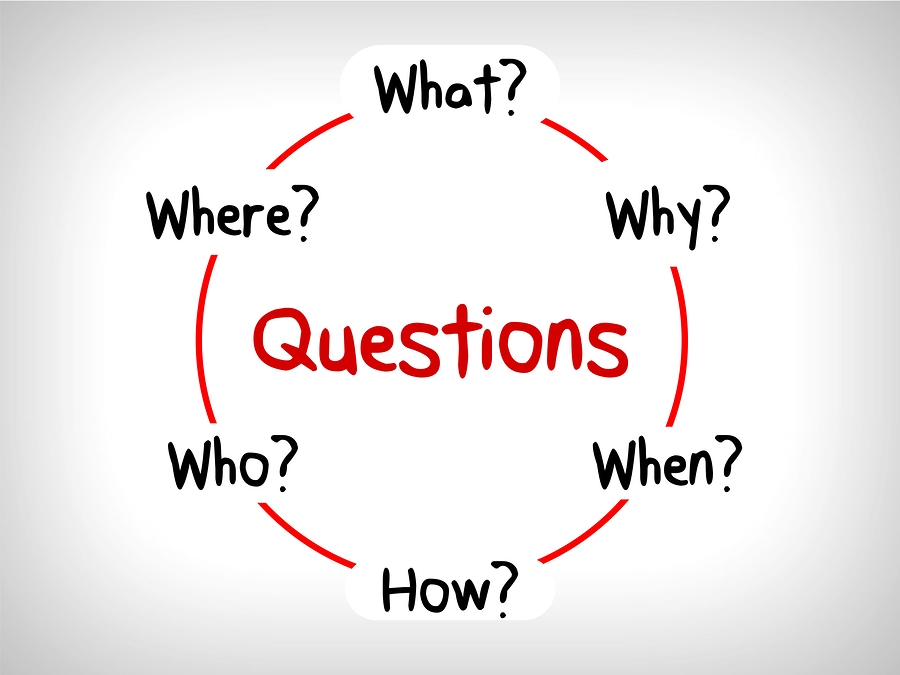The importance of the art of questioning continues to resonate in the business/organizational world, especially in such books as Hal Gregersen’s Questions Are the Answer: A Breakthrough Approach to Your Most Vexing Problems at Work and in Life; Warren Berger’s The Book of Beautiful Questions: The Powerful Questions That Will Help You Decide, Create, Connect, and Lead; Frank Sesno’s Ask More: The Power of Questions to Open Doors, Uncover Solutions, and Spark Change; Andrew Sobel and Jerold Panas’ Power Questions: Build Relationships, Win New Business, and Influence Others; and Marilee Adams’ Change Your Questions, Change Your Life: 12 Powerful Tools for Leadership, Coaching, and Life.

Questioning was a crucial part of Peter Drucker’s repertoire, and he is justly famous for his ‘five most important questions,’ codified and extended in his bestselling book with Frances Hesselbein and Joan Snyder Kuhl, Peter Drucker’s Five Most Important Questions: Enduring Wisdom for Today’s Leaders. Questioning was a major part of his approach as a consultant, and he also practiced self-questioning, a route I followed in my first book, Living in More Than One World: How Peter Drucker’s Wisdom Can Inspire and Transform Your Life. As I continue to mark the 10th anniversary of its publication by Berrett-Koehler, today’s post is built around the ‘Ask Yourself’ sections that appear throughout the book, divided into subject areas. Each is a direct quote from the self-questions I formulated.
From Chapter 1: Designing Your Total Life
Is there a mentor or a friend I could contact now who could give me ideas on how to add more multidimensionality to my life? Is there someone I could contact to offer assistance in defining life goals or priorities to explore new directions?
From Chapter 2: Developing Your Core Competencies
Do I give myself enough credit each day for the achievements I make, or do I take them for granted? What is a particular lesson learned from my early work experience that is so powerful that I will never forget it?
Where and how could I get away from my daily responsibilities to begin engaging in self-reflection? How can this self-reflection relate to and help my annual performance review at work, where I am asked to review the accomplishments of the past year and plan my work goals for the next? How can it help me assess my personal goals?
From Chapter 3: Creating Your Future
How would my choice of a second career differ from my first? Would I be looking primarily for work with more meaning and significance, and, if so, would income or a lack of it matter to me?
How well do opportunities for a parallel career, perhaps in a nonprofit organization, match my values, experience, and education? What shifts would I have to make in my life to make these changes?
How portable are my skills in my current job? Do they lend themselves to being applied in different industries or even in different countries?
What specifically do I admire about people who have reinvented their lives? What can I learn from their experience that would give me ideas for my own possible reinvention?
From Chapter 4: Exercising Your Generosity
Have mentors played a role in my self-development, and have I acknowledged their contributions later in life? What did they contribute? Have I been a mentor to anyone, either formally or informally, and what have I gained from the experience?
From Chapter 5: Teaching and Learning
Do I consciously build continuous learning into my life? When I attend conferences and trade shows, do I have a strategy ahead of time for making the most of learning opportunities, such as how I choose which classes to attend, and what I hope to learn?
Do these questions resonate with you in either your personal or professional life? How can they become part of your self-development, inside and outside the workplace?
